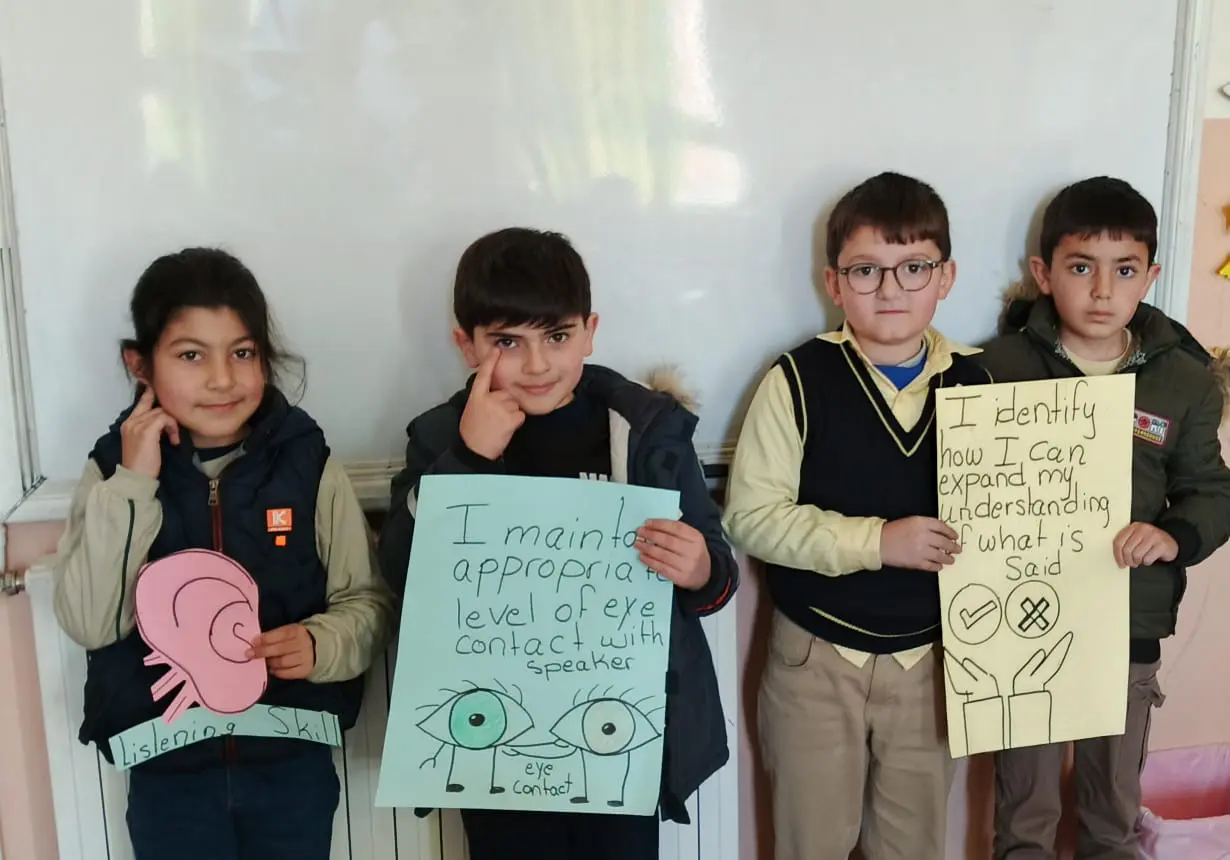To measure student progress in essential skills, we implemented a structured assessment process using various tools: Anecdotal Records, Checklists, Rubrics, and Student/Peer Self-Assessments. We also used evaluation forms like listening tests, cooperation/problem-solving projects, and performance tasks, all tailored to grade levels. Teachers utilized qualitative progression charts and skill-specific tools to track student development. Evaluation forms were regularly completed to monitor achievements and identify areas for support. Assessment results informed lesson planning and teaching adjustments to meet individual student needs. Regular class council meetings reviewed data for consistent and objective evaluations, leading to accurate final assessments. This fostered ongoing feedback and reflection among teachers, improving teaching methods and student outcomes. For example, Grades 10 and 11 students used a peer-assessment checklist during group cooperation projects and speaking activities. This increased engagement, accountability, and constructive feedback, strengthening peer collaboration.
























